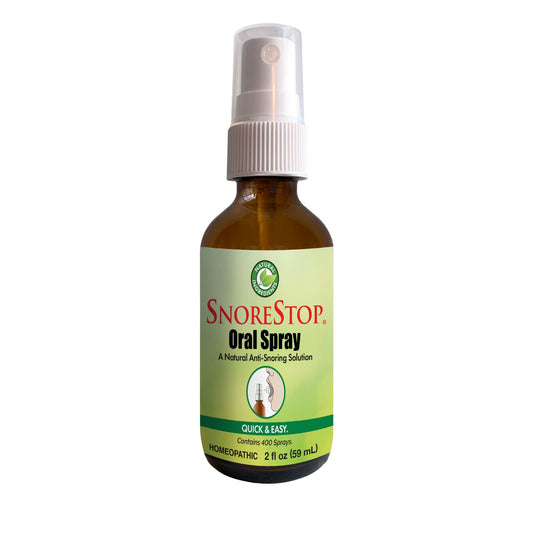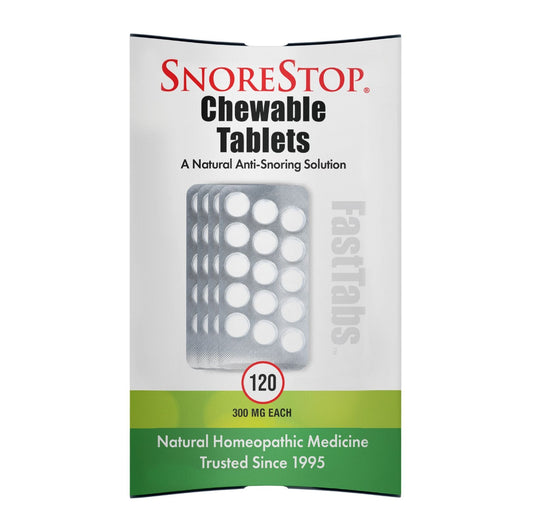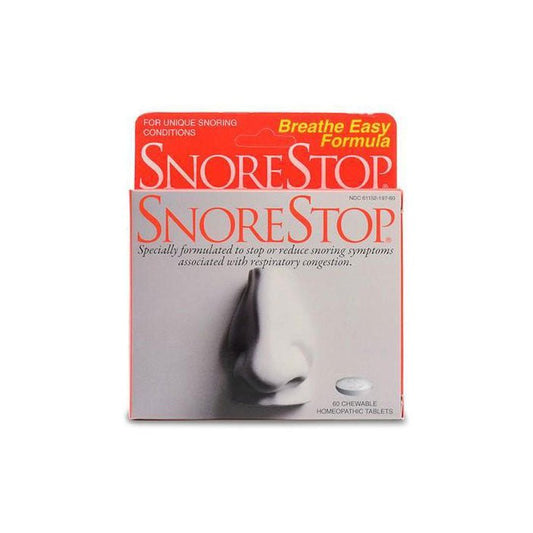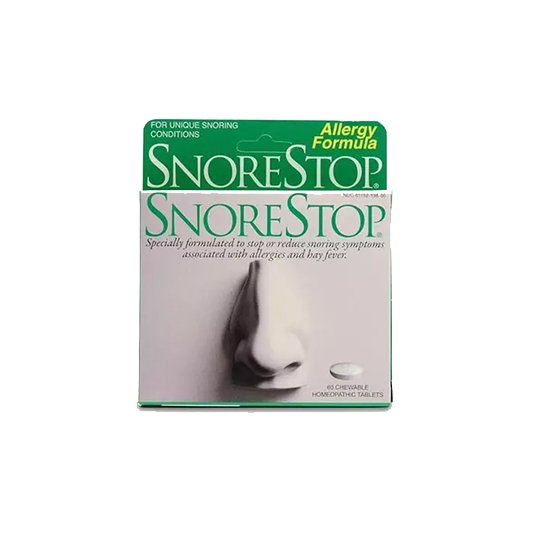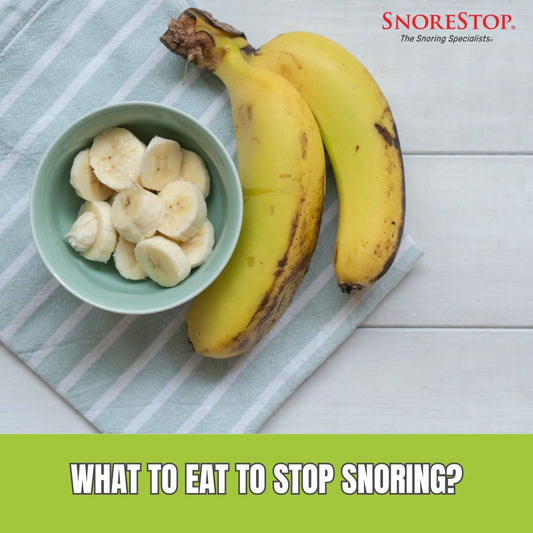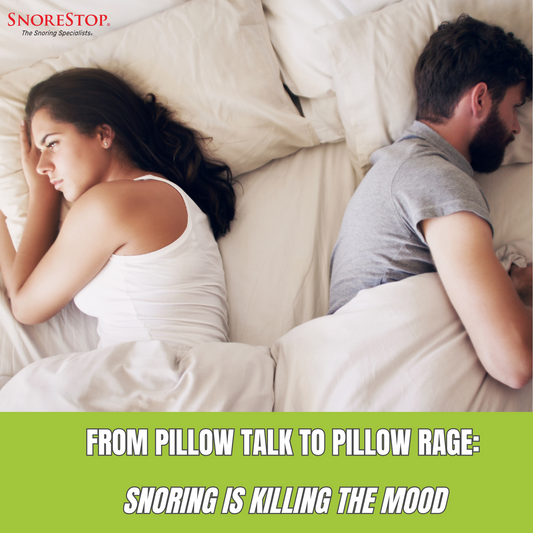
What Vitamins Help With Snoring?
Snoring might be a nighttime nuisance, but it can also signal deeper issues with sleep quality and respiratory health. While many people look to devices or surgery to solve their snoring problems, what if the solution lies in your diet—specifically, your vitamins? Today, we're unpacking the essential nutrients that may help reduce snoring and support better sleep naturally.
Understanding Snoring: Causes and Impact
What Triggers Snoring at Night?
Snoring happens when one or more airways are blocked due to relaxed or inflamed soft tissues, causing them to vibrate. Several factors contribute to this:
- Soft tissue inflammation in the mouth or tongue falling back blocking airway
- Blocked nasal airways (from colds, allergies, deviated septum, or sinus infections)
-
Poor muscle tone, enlarged tonsils, or inflammation in the back of the throat
-
Sleeping on your back
-
Being overweight
-
Alcohol consumption or sedative use
Health Risks Associated with Chronic Snoring
Snoring isn’t just annoying—it can lead to:
-
Daytime fatigue from poor-quality sleep
-
Increased risk of high blood pressure, heart, and cognitive disease
-
Obstructive sleep apnea, a potentially dangerous condition
The Link Between Nutrition and Snoring
How Diet Affects Airway Function
Nutrition plays a role in muscle function, inflammation, and tissue repair—all of which affect the upper airway. When we lack key nutrients, our tissues may become inflamed or weakened, increasing the chances of snoring.
Can Deficiencies Cause Snoring?
Yes! For example, low levels of Vitamin D or magnesium can reduce muscle tone or heighten inflammation—both contributing to snoring. That’s why tackling snoring with the right vitamins can make a big difference.
Key Vitamins That Help Reduce Snoring
Let’s explore the top vitamins and minerals that can naturally minimize or eliminate snoring.
Vitamin C – For Reducing Nasal Congestion
Vitamin C boosts immunity and reduces inflammation. It helps clear up nasal blockages by:
-
Strengthening blood vessels
-
Reducing sinus inflammation
-
Promoting easier breathing
Vitamin D – Supporting Respiratory Muscle Function
Low Vitamin D levels are associated with:
-
Increased airway resistance
-
Weaker respiratory muscles
-
Higher risk of sleep disorders
Ensuring adequate Vitamin D can help keep your airways open at night.
Vitamin E – Antioxidant Role in Tissue Health
Vitamin E:
-
Protects tissues from oxidative stress
-
Helps repair inflamed tissues in the throat
-
Supports overall respiratory health
Vitamin B6 – Improving Sleep Quality
Vitamin B6 promotes melatonin production, which regulates sleep cycles. More restful sleep means less restless movement and snoring.
Vitamin B12 – For Better Oxygen Circulation
B12 helps with:
-
Red blood cell formation
-
Oxygen transport
-
Reducing fatigue and promoting deeper sleep
This combination can reduce the physical causes of snoring.
Vitamin A – Enhancing Mucosal Health
Vitamin A keeps mucous membranes healthy, especially in:
-
The nose
-
Throat
-
Lungs
It helps reduce mucus build-up and airway blockage.
Magnesium – Relaxing Muscles to Prevent Airway Obstruction
Magnesium supports muscle relaxation and sleep regulation. It:
-
Reduces airway constriction
-
Minimizes nighttime muscle spasms
-
Improves deep sleep stages
How to Incorporate These Vitamins Into Your Diet
Natural Food Sources Rich in Anti-Snoring Vitamins
| Vitamin | Food Source |
|---|---|
| Vitamin C | Citrus fruits, bell peppers, kiwi |
| Vitamin D | Fatty fish, egg yolks, fortified milk |
| Vitamin E | Nuts, seeds, spinach |
| Vitamin B6 | Bananas, potatoes, chickpeas |
| Vitamin B12 | Meat, dairy, fortified cereals |
| Vitamin A | Carrots, sweet potatoes, leafy greens |
| Magnesium | Almonds, dark chocolate, legumes |
Choosing the Right Supplements
-
Choose third-party tested supplements
-
Avoid mega-doses without doctor advice
-
Look for combined formulations for better absorption
Lifestyle Tips to Enhance Vitamin Effects
Hydration and Snoring Prevention
Dry airways cause more tissue vibration. Drink enough water daily—especially before bed.
Sleeping Positions That Open Airways
Sleeping on your side instead of your back reduces the chance of airway collapse.
Avoiding Triggers Like Alcohol and Smoking
Both irritate the throat and relax muscles too much—leading to more snoring.
When to See a Doctor About Snoring
Signs It May Be Sleep Apnea (not just primary snoring)
-
Gasping or choking during sleep (any paused breathing)
-
Loud, persistent snoring
-
Extreme daytime drowsiness
Myths vs. Facts: Vitamins and Snoring
Do Multivitamins Prevent Snoring?
Not always. Multivitamins may not have sufficient doses of key nutrients unless targeted for respiratory support.
Can You Overdose on Vitamins While Treating Snoring?
Yes. Overdoing fat-soluble vitamins like A, D, and E can lead to toxicity. Always follow dosage guidelines.
FAQs About Vitamins and Snoring
Can vitamins cure snoring completely?
No, but they can reduce it significantly when combined with lifestyle changes.
How long does it take for vitamins to reduce snoring?
Most users report improvement within 2–4 weeks of consistent use.
Are there side effects to using vitamins for snoring?
Only if taken in excess. Stick to recommended dosages.
Should I take vitamins at night or morning for snoring?
Morning is typically best, especially for energy-related vitamins like B12.
Are there vitamins that make snoring worse?
None directly, but excessive doses can cause side effects affecting sleep.
Can children take these vitamins for snoring too?
Yes, but consult a pediatrician for proper dosing.
Conclusion: Breathing Easier with the Right Vitamins
Snoring doesn't have to be a lifelong struggle. By understanding the causes and supporting your body with the right vitamins—like C, D, E, B6, B12, A, and magnesium—you can reduce or even eliminate snoring naturally. Pair these with smart lifestyle changes, and you're well on your way to a quieter, more restful night.
🔗 External Link:
For further reading on snoring and its connection to sleep apnea, visit Sleep Foundation – Snoring Causes and Treatment.

